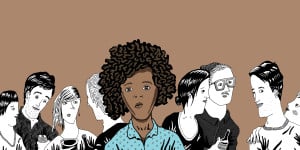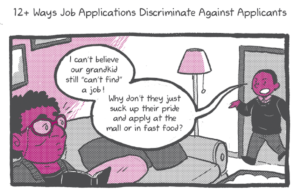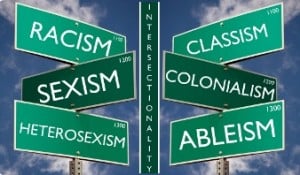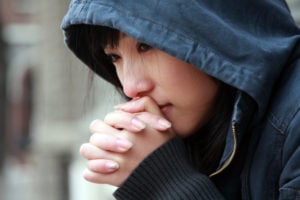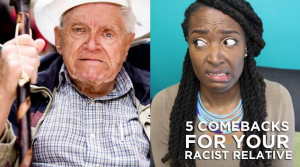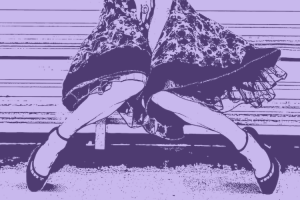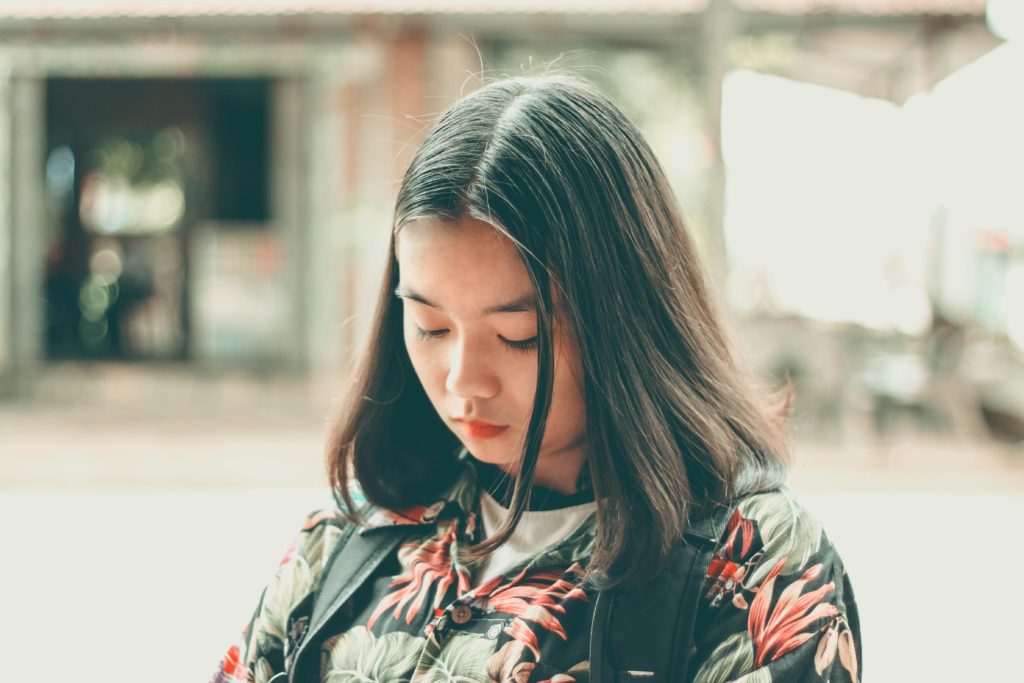
Person looking sad
Originally published on Rainier Valley Corps and cross-posted here with their permission.
I’ve learned a hard truth while working and volunteering at community-based organizations (CBOs) over the past decade: Community can break your heart.
In fact, mine’s been broken so many times now that I’ve asked myself if fighting on the front lines for the liberation of my communities is worthwhile when it begins to feel disempowering.
For instance, I left a people of color (POC)-led CBO because the leadership refused to acknowledge transgender (trans) and queer lives in the organization’s theory and practices.
Despite its mission of ending the mass incarceration of Black and Brown folks, this CBO ignored the reality that nearly half of Black trans people in the U.S. have been incarcerated at some point, according to the National Center for Transgender Equality.
Advocating for change from within this CBO exhausted me. I realized that sharing gender pronouns at the start of meetings and writing to incarcerated Black trans people would never be prioritized there. I left to preserve my health and well-being as a Black queer nonbinary woman.
When departing from a CBO that denies my identities and/or values, I ask myself: How much longer can I stay committed to creating social change alongside community members when I keep getting gaslighted, manipulated, and disposed of by community organizations?
Too often, CBOs become sites of oppression for me and others who occupy the margins of society.
Here’s just a tiny sampling of how CBOs have harmed us:
- Leadership not responding to the evolving needs of their staff and the communities they serve and represent. Examples of this include leadership, usually an executive director and board members, pushing back against implementing explicit anti-oppression policies and not promoting POCs to management positions.
- CBOs operating like “cults of personality,” centering their programming around a central charismatic leader with social capital, usually someone who’s cisgender, heterosexual, and male.
- CBOs taking the lead on issues of communities that their leadership and staff don’t belong to, such as white LGBTQ organizations framing themselves as experts on Queer and Trans People of Color issues.
- CBOs tokenizing already marginalized program participants’ labor and narratives without compensating them.
- CBOs allowing sexual harassers to remain a part of their organization and never holding them accountable, while the survivors, typically more marginalized than their perpetrator, are pushed out.
When I question whether my role as a community organizer is worth these types of emotional, mental, physical, and spiritual sacrifices, the words of the underrated Black Civil Rights Movement organizer Ella Baker run through my mind:
“I was never working for an organization. I have always tried to work for a cause. And the cause was bigger than any organization.”
This idea grounds me in my purpose, reminding me why I got involved with CBOs in the first place: to work for causes that matter to me because of my oppressed identities and lived experiences, specifically to create a more just world for Black, Brown, trans, queer, and disabled people.
Reading about Baker’s praxis in Barbara Ransby’s biography of her life, Ella Baker and the Black Freedom Movement: A Radical Democratic Vision, transformed my approach to community organizing. It’s necessary reading for anyone who — paraphrasing a famous Baker quote — cannot rest until freedom comes.
Her words remind me that working on behalf of my communities doesn’t require being tied to any one particular organization and assure me that I’m hardly the first Black woman to become weary of the confines and contradictions that come with being a part of a community organization.
Baker believed in leaderful movements, similar to organizers in the current Movement for Black Lives.
She cautioned against relying on one central male leader to represent an entire organization and recognized how ego coupled with sexism, patriarchy, and classism stunted the Civil Rights Movement from achieving its full potential.
She knew when to walk away from organizations without abandoning the causes she fought for, and I try to channel Baker’s courage by exiting a CBO when it no longer honors my humanity.
I don’t think Baker would be surprised that some of the historically oppressed communities who are supposed to benefit most from community organizations are being hurt by them instead, especially since cisgender, heterosexual white academics have historically been the ones to define what a CBO is.
During my brief stint in a master of social work program, I learned that community organizations in the United States began defining themselves as such at the turn of the 20th century and mostly comprised privileged folks doing charitable deeds for groups who were perceived as inherently incapable of helping themselves.
Of course, these CBOs lacked the awareness that their existence would be irrelevant if it weren’t for white supremacy, patriarchy, ableism, and other systems of oppression. Many of them viewed themselves as saviors for “the less fortunate,” those who failed to pull themselves up by the bootstraps.
As the 20th century unfolded, historically oppressed groups realized that CBOs could be more than just vehicles for charity, but also vehicles for facilitating community empowerment and systemic change.
Two of the most influential community organizations founded by Black people in the 20th century were the National Association for the Advancement of Colored People (NAACP) and the Southern Christian Leadership Conference (SCLC).
Baker dedicated much time and energy to the NAACP and the SCLC, both powerful organizations that played vital roles in the Civil Rights Movement. Still, she wasn’t afraid to leave them when she felt their values no longer aligned with her own.
***
To do better, we need to reimagine CBOs how Baker would: By centering our causes instead of ourselves or organizations. We need to learn how to our let go of our egos, which get us wrapped up in status and how much power we can attain within organizations.
It’s time for CBOs to lead with Baker’s humility. Those of us who work and volunteer at CBOs must be honest about whether we’re more concerned with looking good than doing good. If we can’t be accountable to ourselves and our values, then we definitely can’t be accountable to the communities we organize in and serve.
It’s time to decide whether or not we want to continue replicating the oppressive structures and dynamics of private institutions or if we want to build community organizations that authentically cultivate and prioritize the leadership of the most oppressed in our communities. Baker’s spirit tells me that choosing the latter is our best option.
[do_widget id=’text-101′]
Neesha Powell-Twagirumukiza (she & they pronouns) is a former Everyday Feminism Reporting Fellow. Neesha identifies as an intersectional feminist, womanist, writer, community organizer, facilitator, dancer, freedom fighter, wife, and cat mama. She’s constantly conspiring in the name of liberated Black futures, queer and trans people of color power, solidarity economics, and transformative justice/community accountability. Neesha’s based in a suburb south of Seattle, where she lives, loves, and creates with chosen family.
Search our 3000+ articles!
Read our articles about:
Our online racial justice training
Used by hundreds of universities, non-profits, and businesses.
Click to learn more





